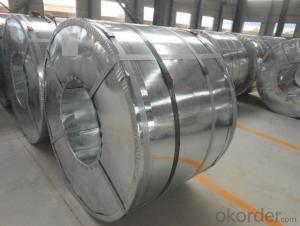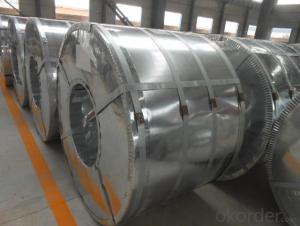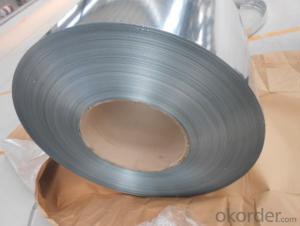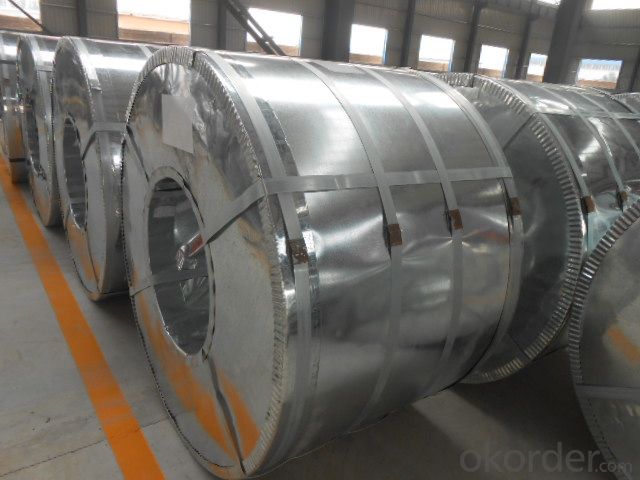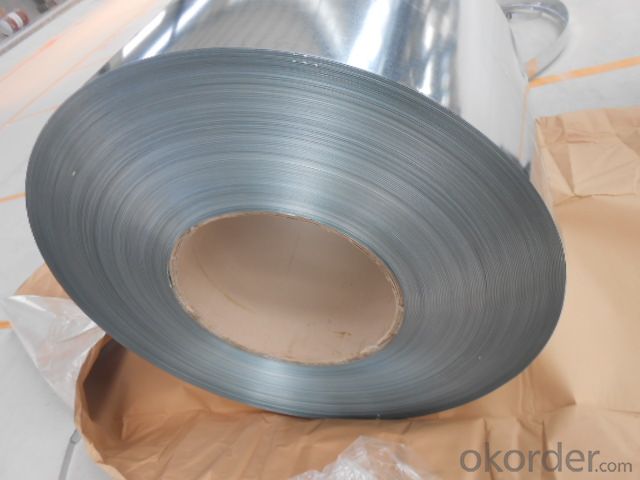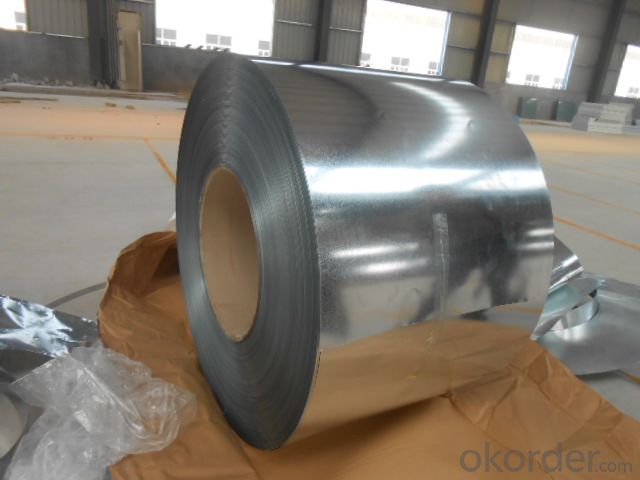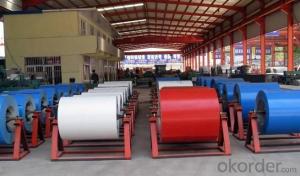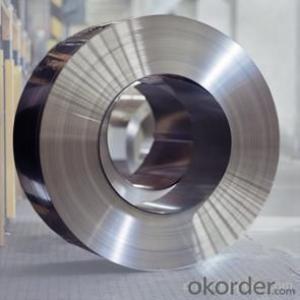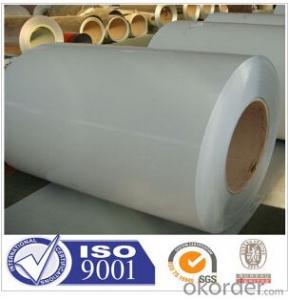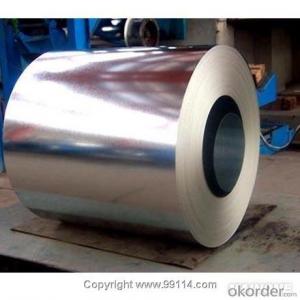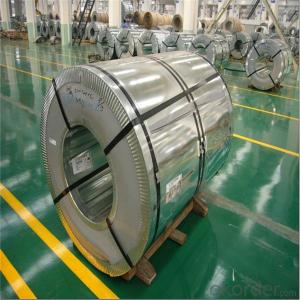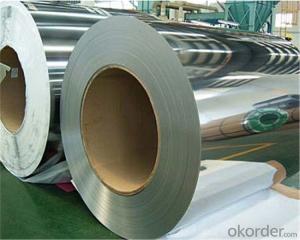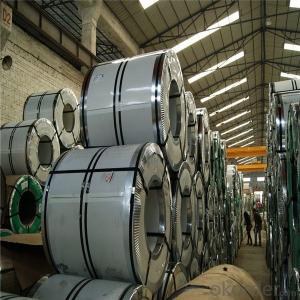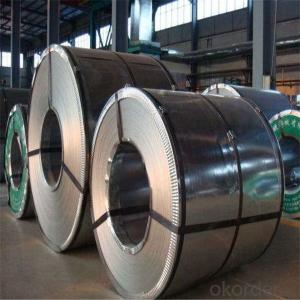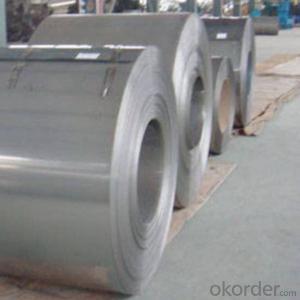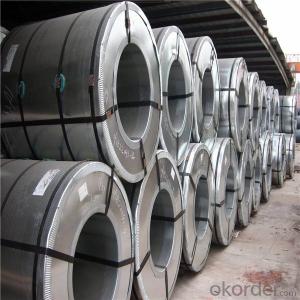STAINLESS STEEL Q/TX3548-2013 standard
- Loading Port:
- China Main Port
- Payment Terms:
- TT OR LC
- Min Order Qty:
- -
- Supply Capability:
- -
OKorder Service Pledge
OKorder Financial Service
You Might Also Like
STAINLESS STEEL COILS
Packaging & Delivery
Packaging Detail: seaworthy export package
Delivery Detail: on request
Specifications
1. more than 10 years’ experience on this field
2. advanced equipments
3. competitive price
4. soonest delivery
Product Description :
Commodity
STAINLESS STEEL COILS
Technical Standard: Steel Grade &Standard:J1
Surface Treatment:NO.1
Hot rolled Annealed and Pickled(HRAP)
Grade: J1 , Prime quality
Mill Edge. No connection point in each coil.Component: Ni:1% , Cu: 0.65-0.9%, Cr: 13%, Mn: 10–12%, C: 0.09-0.12%
Package:Properly packed for ocean freight exportation in 20''container
Application::home appliances, constructions, building, machineries
Our Advantages :
1. Expertise:
More than 10 years of manufacture: we know how to properly handle every step of production.
2. Competitive price:
We can offer competitive prices to our customers.
3. Accuracy:
We have excellent technicians and leaders, which can ensure our products are exactly what you want.
4. Materials:
All steel coils are made of high-quality raw materials.
5. Certificate:
Our products are certified by ISO9001.
6. Productivity:
We have large-scales of production lines,, which can guarantee all your orders will be finished in earliest time.
The furnace heating style: improved Sendzimir heating technology
Hourly output: max.76.3t/h
Process after coating: tension leveling, Passivation or oiling
Our Service
Our quality
Test Equipments of Prepainted Galvanized Steel Coil : Salt-spray tester; Atomic absorption spectrophotometer; Rockwell typer hardness tester; Tensile test machine; Metrohm titration; Laboratory Bend test machine.
Our packing
Properly packed for ocean freight exportation in 20''container, galvanized metal fluted rings on inner and outer edges, galvanized metal & waterproof paper wall protection disk, galvanized metal & waterproof paper around circumference.
R&D department
R&D department concentrates on researching and developing reliable products with best quality. The quality department test and control every process of production to guarantee the best quality of product
- Q: What is the purpose of steel coils?
- The purpose of steel coils is to efficiently store and transport large quantities of steel in a compact and organized manner.
- Q: What are the main factors that affect the quality of steel coils?
- The main factors that affect the quality of steel coils include the composition and purity of the steel used, the manufacturing process and techniques employed, the level of heat treatment and cooling, the presence of any impurities or defects, and the overall handling and storage conditions.
- Q: How are steel coils used in the production of steel bolts?
- Steel coils are used in the production of steel bolts by being unwound and fed into a machine that cuts and shapes them into the desired bolt size and shape. The coils provide a continuous and uniform supply of steel, ensuring consistent quality and efficiency in bolt production.
- Q: How are steel coils used in the manufacturing of railroads?
- Steel coils are used in the manufacturing of railroads as they serve as a primary raw material for producing railway tracks. These coils are processed and cut into appropriate lengths, then shaped into rails through a series of rolling and forging techniques. The resulting rails provide the necessary strength, durability, and stability required to support heavy loads and withstand the wear and tear of train traffic.
- Q: What is the average lifespan of a steel coil storage rack?
- The average lifespan of a steel coil storage rack can vary depending on several factors such as the quality of the rack, proper maintenance, and usage conditions. However, with proper care and maintenance, a well-built steel coil storage rack can typically last anywhere from 10 to 20 years or even longer.
- Q: how many persent of manganese in all types of carbon steel
- Not more than 1.65 % of manganese in carbon steel. *Carbon steel, also called plain carbon steel, is steel where the main alloying constituent is carbon. The American Iron and Steel Institute (AISI) defines carbon steel as: Steel is considered to be carbon steel when no minimum content is specified or required for chromium, cobalt, columbium, molybdenum, nickel, titanium, tungsten, vanadium or zirconium, or any other element to be added to obtain a desired alloying effect; when the specified minimum for copper does not exceed 0.40 percent; or when the maximum content specified for any of the following elements does not exceed the percentages noted: manganese 1.65, silicon 0.60, copper 0.60 *AISI 1040 is a carbon steel which is having a 0.60-0.90 % of manganese.
- Q: How are steel coils used in the manufacturing of construction equipment?
- Steel coils are used in the manufacturing of construction equipment as they serve as a primary raw material for the fabrication of various structural components such as frames, bodies, and chassis. These coils are typically processed through cutting, bending, welding, and shaping techniques to create the necessary parts that provide strength, durability, and stability to construction machinery.
- Q: What are the different types of steel coil cutting machines?
- There are several different types of steel coil cutting machines available in the market, each designed to cater to specific needs and requirements. Some of the commonly used types include: 1. Slitting Machines: Slitting machines are used to cut steel coils into narrower strips. They have multiple circular blades that make precise cuts along the length of the coil, allowing for the production of narrower coils or strips. 2. Cut-to-Length Machines: Cut-to-length machines are designed to cut steel coils into specific lengths. These machines can accurately measure and cut the coil to the desired length, ensuring uniformity and precision. 3. Rotary Shears: Rotary shears are heavy-duty cutting machines that can handle thicker and larger steel coils. They use a rotating blade to cut through the coil, making it suitable for cutting thicker gauge materials. 4. Multi-Blanking Machines: Multi-blanking machines are designed to cut steel coils into multiple smaller blanks simultaneously. These machines can cut the coil into various shapes and sizes, making them ideal for producing multiple parts from a single coil. 5. Slit and Cut-to-Length Combination Machines: These machines combine the functionalities of slitting and cut-to-length machines, allowing for both narrow strip cutting and length cutting in a single process. They are versatile and efficient, saving time and increasing productivity. Each type of steel coil cutting machine has its own advantages and is suitable for specific applications. The choice of machine depends on factors such as coil thickness, desired strip width, required length accuracy, and production volume.
- Q: What are the common tests performed on steel coils for quality assurance?
- Steel coils undergo various tests to ensure their quality and compliance with industry standards and customer needs. Dimensional inspection is a prevalent test that measures the length, width, and thickness of the coils to verify their specified dimensions. Any deviations in dimensions can indicate potential quality issues. A thorough visual inspection is also conducted to identify defects and surface imperfections like scratches, dents, or rust. This examination is crucial to identify any visual flaws that may affect the coils' performance or appearance. Furthermore, mechanical tests are carried out to assess the strength and durability of the steel coils. Tensile tests measure the maximum force the steel can withstand before breaking, determining its tensile strength, yield strength, and elongation properties. Another commonly performed mechanical test is the hardness test, which determines the steel's resistance to indentation, indicating its strength and toughness. These tests are typically conducted using methods like Rockwell, Brinell, or Vickers. Corrosion resistance is also evaluated as a vital aspect of steel coil quality. Tests such as salt spray or humidity tests simulate harsh environmental conditions to assess the steel's ability to resist corrosion. Lastly, chemical composition analysis is performed to ensure that the steel coils contain the necessary elements in the correct proportions. This analysis verifies that the steel meets the required chemical properties, which significantly impact its performance and suitability for specific applications. In summary, these common quality assurance tests guarantee that steel coils meet industry standards, customer requirements, and are suitable for their intended use.
- Q: What are the common surface treatments for galvanized steel coils?
- The common surface treatments for galvanized steel coils include passivation, chromate coating, and oiling. Passivation is a process where a thin layer of protective material, such as zinc phosphate or chromate, is applied onto the galvanized steel surface. This layer helps to enhance the corrosion resistance of the steel by providing a barrier against moisture and atmospheric elements. Passivation also improves the adhesion of subsequent coatings or paints that may be applied to the steel. Chromate coating, also known as chromating or chromate conversion coating, involves the application of a thin layer of chromate onto the galvanized steel surface. This coating provides an additional layer of protection against corrosion and improves the appearance of the steel. Chromate coatings can be clear or colored, depending on the desired aesthetic. Oiling is another common surface treatment for galvanized steel coils. This involves the application of a thin layer of oil onto the surface of the steel, which helps to prevent the formation of rust and corrosion during storage and transportation. Oiling also provides temporary protection against moisture and other environmental factors until the steel is further processed or used in its final application. These surface treatments are commonly used to enhance the performance, durability, and appearance of galvanized steel coils, ensuring that they can withstand harsh conditions and maintain their quality over time.
Send your message to us
STAINLESS STEEL Q/TX3548-2013 standard
- Loading Port:
- China Main Port
- Payment Terms:
- TT OR LC
- Min Order Qty:
- -
- Supply Capability:
- -
OKorder Service Pledge
OKorder Financial Service
Similar products
Hot products
Hot Searches
Related keywords
